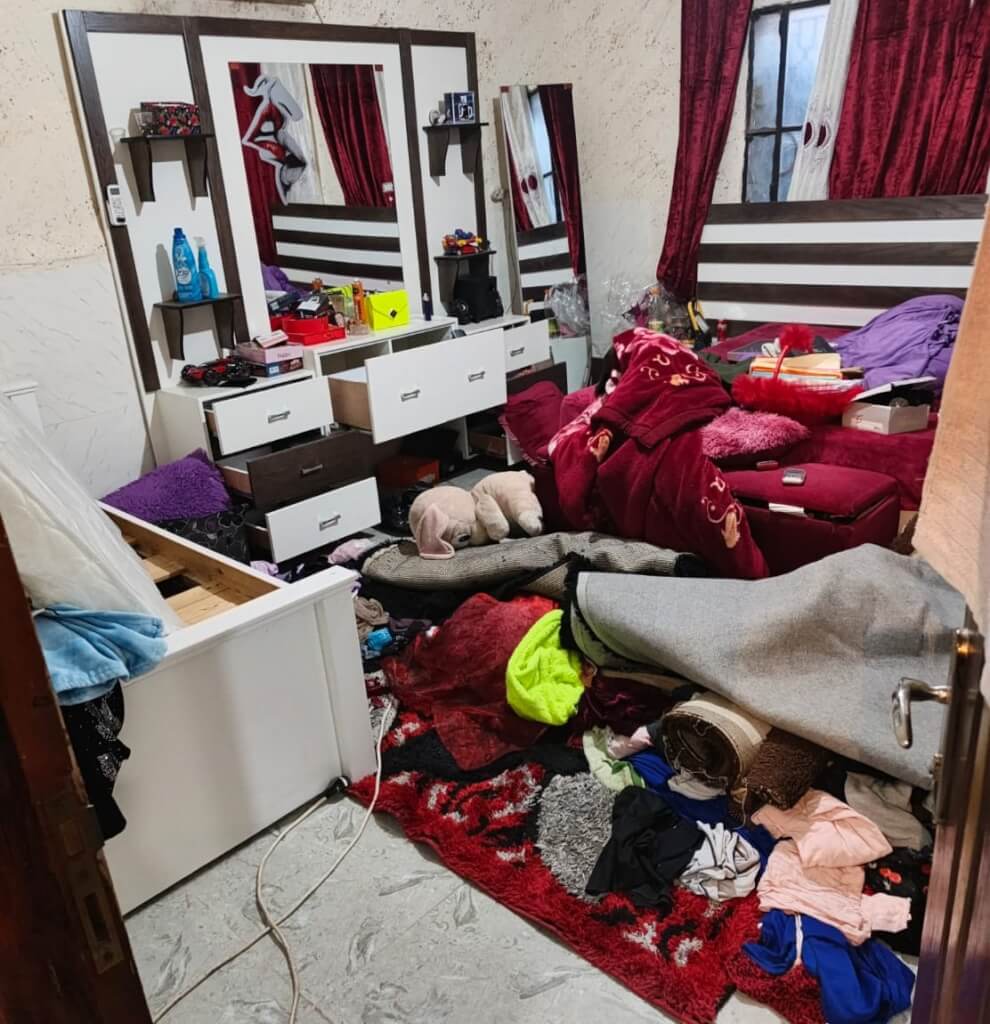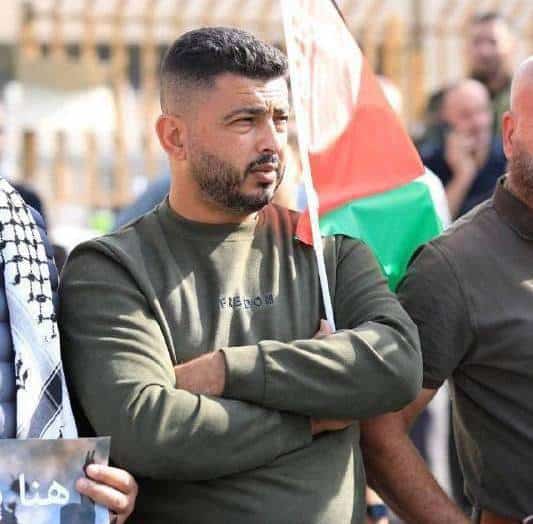-
Israel Imposes Curfew and Locks Down Tubas
reshared from: https://jordanvalleysolidarity.org/news/tubas-locked-down-under-curfew/ Tubas town and surrounding villages were locked down under a brutal and violent curfew from Wednesday 25th to Saturday 29th November. A military operation by occupation forces put Tubas and the surrounding towns of Tammun, Aqaba, Tayasir, and Wadi al-Fara under siege. On Wednesday, Israeli forces stormed wide areas of the governorate, […]
-
UPDATED: Palestinian Activist Ayman Ghrayeb Abused in Custody and Held in Administrative Detention
FOR IMMEDIATE RELEASESunday, November 23, 2025 Update 3/12/2025: https://www.frontlinedefenders.org/en/case/human-rights-defender-ayman-ghraieb-held-administrative-detention Ayman Ghrayeb, a prominent Palestinian grassroots activist based in the Jordan Valley, was arrested by Israeli forces on Monday, November 17, and was forcibly disappeared for two days before his lawyers were given any information about his whereabouts. During this time, Ghrayeb had been covertly held […]
-
Palestinian Activist Ayman Ghrayeb Hospitalized; Facing Administrative Detention
FOR IMMEDIATE RELEASEThursday, November 20, 2025 Ayman Ghrayeb, a prominent Palestinian grassroots activist based in the Jordan Valley, was arrested by Israeli forces on Monday, November 17, and was forcibly disappeared for two days before his lawyers were given any information about his whereabouts. Throughout the first two days of his arrest, both the Israeli […]
Action Alert An Nabi Saleh Apartheid Wall Arrests BDS Bethlehem Bil'in Cast Lead Demonstration Denial of Entry Ethnic Cleansing Farmers Gaza Global Actions Hebron House Demolition International law Israeli Army Jerusalem Live Ammunition Nablus Ni'lin Prisoner Ramallah Rubber-coated steel bullets Settlement Settlers Settler violence Tear-Gas Canister Video


